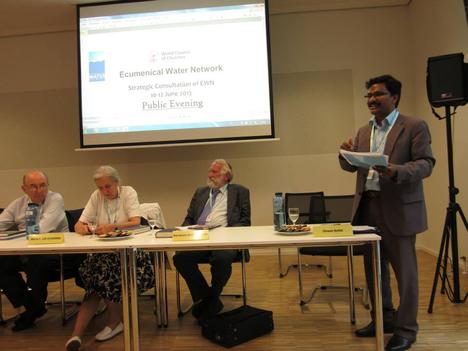Published on: 29/07/2013

The World Council of Churches (WCC) has issued a statement calling on churches, governments and the United Nations to ensure universal access to water, sanitation and hygiene as part of the post-2015 development agenda.
The Church is seen to have a vital role in advocating for the full realisation of the human right to water and for water justice, especially for the poor and other marginalised groups.
Forty church leaders, theologians, academics and activists developed the statement at a strategic consultation in Berlin, Germany, organised by the WCC’s Ecumenical Water Network (EWN) from 10-12 June 2013.
The statement is strong in moralistic activism, lamenting how “we humans have treated God’s gift of water irresponsibly” and condemning practices that “turn water from being a gift of God into a mere commodity sold to the highest bidder”.
While the Church has always supported community water and sanitation projects, it did not undertake advocacy for water justice until the establishment of the EWN in 2005.
The EWN will host two workshops at WCC’s upcoming assembly in Busan, Republic of Korea, from 30 October to 8 November 2013: Troubled Waters: Accompanying Communities in Conflict Situations (WS238) and Churches for Water and Human Rights: Challenges and Opportunities (WS239).
During their Berlin consultation, the EWN elected Gaim Kebreab of the Norwegian Church Aid and Veronica Flachier from the Latin American Council of Churches as the new co-chairs of the EWN’s international reference group, while Rev. Dr Bridget Ben-Naimah from the All Africa Conference of Churches stepped down after her term as interim co-chair.
Please see the links below for references and more information.
Source: WCC, 18 Jul 2023